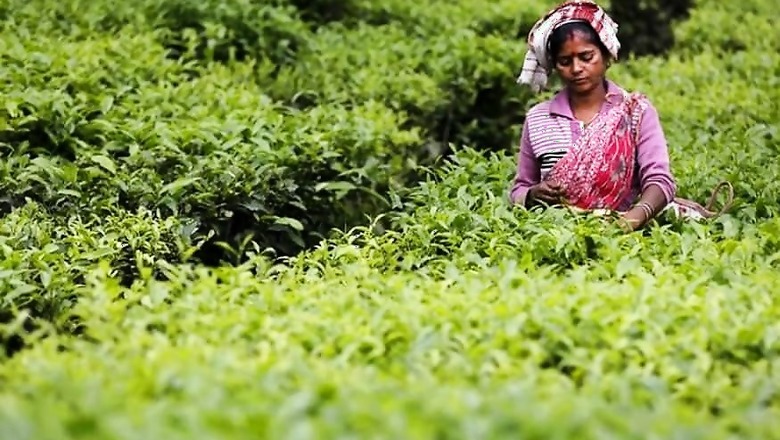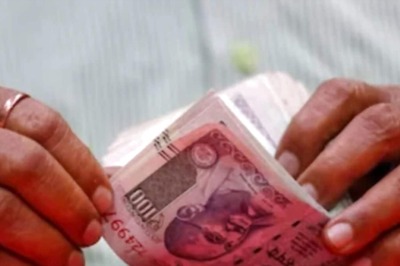
views
Kolkata: Life has become difficult for Romila Barla, a mother of two, after she lost her husband following prolonged illness about two years ago. She was already struggling with irregular payments at tea estates, and now the Covid-19 pandemic has snatched everything that she had left to feed her children with.
Ever since the lockdown was announced, lives of nearly 4 lakh workers has turned miserable in the already troubled tea estates of north Bengal.
The region has 287 tea plantations, big and small, but 87 of them are famous for arguably the finest tea in the world for the first and second flush. Unfortunately, the industry has failed to pick the first flush, because of the lockdown, which started in March. Though the first flush season lasts till the first week of May, the lockdown has been extended till May 3. Therefore, now it is impossible to get the first flush and the tea estate owners and workers are now worried about the monsoon, autumn and winter flush.
Speaking to the News18, Amritangshu Chakraborty, adviser to the Indian Tea Planters’ Association (ITPA), said, “The tea estates are going towards darkness. Due to Covid-19 we missed the first flush, which contributes nearly 30-35 per cent of the annual revenue of the planters. This revenue helps us manage the whole year's expenditure. But now everything is finished. The future of tea estates and nearly 4 lakh workers is in the dark and we don’t know the formula to recover from it. Tea workers gets Rs 176 per day and for some tea estate owners it has become a challenge to pay the salary. There is huge loss of revenue which we get from the foreign buyers from the first flush. We are requesting the government to consider tea workers as farmers and allow them to work under relaxation rule.”
The annual tea production in north Bengal, mainly in the Hills, is more than 7.5 million kilogram and the first flush contributes nearly 25% of the total production.
Former chairman of the Darjeeling Tea Association (DTA) Ashok Lohia said, “We export most of the produce from the first flush because of its finest quality. But now we missed it and it will have an adverse impact.”
Even at the famous Jungpana Tea Estate, the first flush cannot be collected, which has come as a setback for big foreign clients like Harrods, and Fortnum & Mason in the UK, Mariage Frères and Fauchon in France and the tea-loving royal family of Japan.
Both the first and second flush offer good but most of the big players in India and abroad prefers the first flush due to its "crisp aromatic flavour". The second flush of Darjeeling tea which tends to brew darker – with a little astringency in taste – is equally good but it is also expected to suffer with the brewing Covid-19 crisis in the hill districts.
The second flush season will start from the first week of May and will go on till the first week of June. Even after the containment of the novel coronavirus situation, it will take a couple of months to prepare the gardens for fresh production. Nearly 65% of tea gardens in the hills are organic fields because producers don’t use any chemical or fertiliser – this makes the crop prone to pest attack. Also, the leaves are overgrown now (of no use) and need to be trimmed. So the entire process will take another few days for fresh cultivation.
According to locals, the tea estates have already incurred a loss of nearly Rs 90 crore and are expecting a further loss of Rs 160-165 crore in the coming days. If the situation doesn’t improve, then the industry will face further losses during the monsoon flush (September), autumn flush (October and November) and winter flush (November and February).




















Comments
0 comment